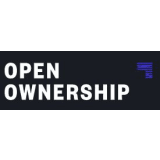
Anonymous shell companies enable corruption, fraud, organised crime and tax evasion. The wider the access to high quality data on who owns what, the harder it will be for corrupt individuals to hide.
OpenOwnership drives greater corporate transparency across the world by making it easy to publish and access high-quality, linked data about who owns companies.
By leading the development of an open, global beneficial ownership data and policy ecosystem, we aim to create a new set of norms and end anonymous company ownership.
According to the World Bank, around 70% of corruption cases involve anonymous companies. They are also used to move illicit funds - from laundering money for human trafficking and the drug trade to funding terror groups and criminal gangs.
By masking the identities of criminals and tax evaders, shell companies inhibit the ability of law enforcement agencies, journalists and other civil society actors to investigate, expose and punish illegal activity.
This activity is global by default, as corporate structures cross jurisdictions in a deliberate effort to make discovering the true owners impossible. Individual countries holding and maintaining siloed registers of beneficial owners is not enough - this information has to be interlinked so that ownership relationships and financial flows can be tracked across different jurisdictions.
The more, and better quality, beneficial ownership data we have, the more expensive and difficult it will be for corrupt individuals to hide. This is good for governments, businesses, and wider society.
OpenOwnership is driven by the leading transparency NGOs: Transparency International, Global Witness, ONE, Open Contracting Partnership, and the B Team, along with OpenCorporates, and initially funded by the Department for International Development (UK).


